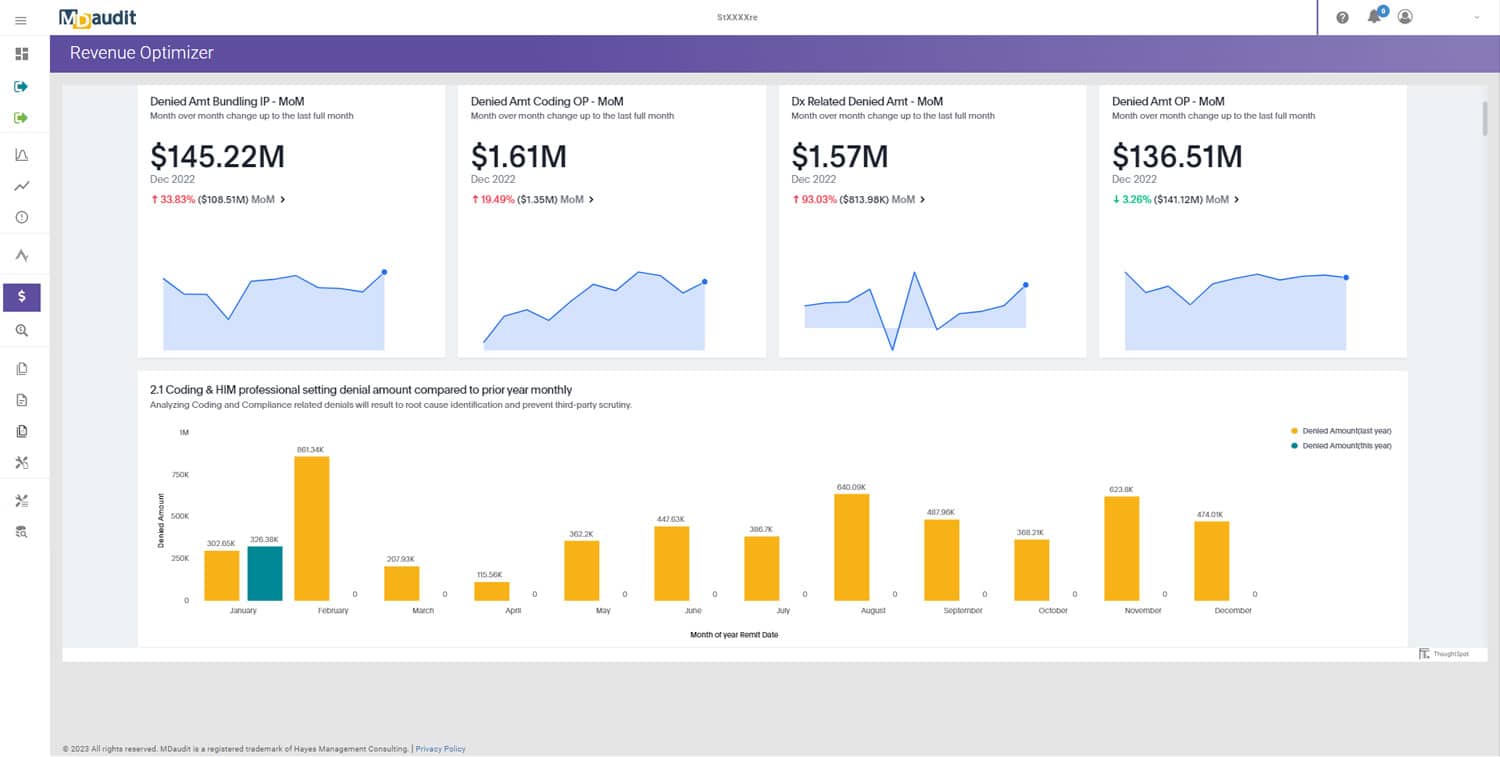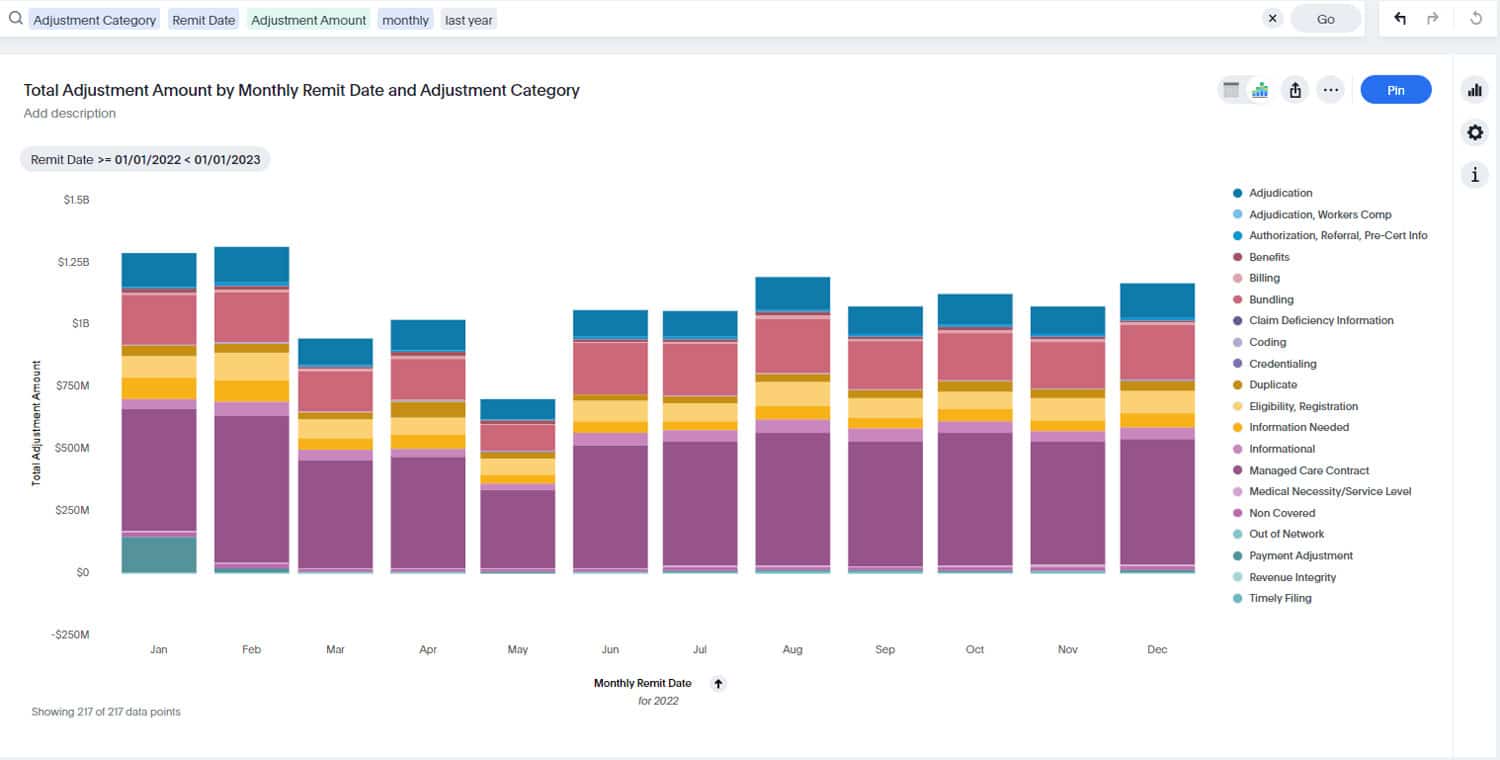In today’s rapidly evolving healthcare environment, regulatory compliance is more than just a checkbox—it is a strategic imperative. Billing errors, whether accidental or systematic, can cost healthcare organizations millions of dollars in penalties, repayments, and lost revenue. To avoid these consequences, healthcare compliance professionals are turning to proactive billing compliance audits to safeguard the revenue cycle and prevent costly penalties. In this blog, we’ll explore why proactive auditing is crucial, common billing compliance pitfalls, the role of compliance monitoring software, and how MDaudit supports proactive auditing efforts.
Why Proactive Billing Compliance Audits Are Necessary
Healthcare billing and coding have become increasingly complex. Constant updates from the Centers for Medicare & Medicaid Services (CMS), stricter payer scrutiny, and aggressive government enforcement have raised the stakes dramatically.
According to a 2023 report from the United States Department of Justice, the government recovered over $1.7 billion from healthcare fraud settlements under the False Claims Act. Additionally, CMS reported that Medicare improper payments totaled $31.7 billion in 2023 alone (CMS Improper Payment Data).
Given this environment, organizations cannot afford a reactive stance. They must find billing errors internally through proactive billing compliance audits before external auditors, whistleblowers, or government investigators do.
Regulatory requirements also reinforce this expectation. The Office of Inspector General (OIG) outlines in its Compliance Program Guidance that organizations must conduct regular audits and monitoring to ensure compliance. Proactive internal auditing is not optional—it is a hallmark of a credible compliance program.
Common Billing Compliance Errors and Their Penalties
Healthcare billing mistakes are common—and costly. Here are the most frequent issues found during a billing compliance audit:
- Insufficient Documentation: Missing signatures, lack of medical necessity documentation, or incomplete notes can invalidate a claim, leading to denied payments or repayments.
- Incorrect Coding or Upcoding: Using the wrong procedure codes or inflating service levels can result in overpayments, triggering repayment demands, False Claims Act penalties, and even criminal charges if deemed intentional.
- Duplicate Billing: Submitting the same claim multiple times, even unintentionally, can raise red flags during payer audits.
- Billing for Medically Unnecessary Services: Claims for procedures or services not deemed necessary by payer standards are a top target for recoupments and investigations.
- Employment of Excluded Providers: Billing services performed by individuals excluded from federal programs leads to automatic payment denials and civil monetary penalties.
Penalties for these mistakes are severe. Violations under the False Claims Act can lead to treble damages and civil penalties exceeding $11,000 per improper claim. In extreme cases, organizations may face exclusion from Medicare and Medicaid programs.
How Proactive Auditing Protects Revenue and Reduces Legal Risk
A proactive billing compliance audit program helps healthcare organizations detect, correct, and prevent issues before they escalate into regulatory investigations or financial losses.
Key benefits of proactive auditing include:
- Preventing Denials and Revenue Loss: Audits identify missing documentation, coding errors, or billing mistakes before claims are submitted. Clean claims lead to faster payments and fewer denials.
- Minimizing Payback Obligations: Catching billing issues internally allows organizations to self-report and refund overpayments under the CMS 60-Day Rule, often mitigating harsher penalties.
- Defending Against Investigations: When regulators or payers audit, documented proactive auditing shows good faith compliance efforts, possibly reducing fines or enforcement actions.
- Identifying Training Needs: Trends in audit findings (e.g., frequent coding errors in certain specialties) can guide targeted staff education, reducing future risks.
- Improving Revenue Cycle Performance: By ensuring claims are accurate and compliant from the outset, organizations maximize reimbursement rates and minimize costly rework.
- Simply put, proactive auditing is an investment that pays for itself many times over—in protected revenue and in avoided legal costs.
The Role of Compliance Monitoring Software
Manual audits are no longer sufficient given today’s claim volumes and regulatory complexity. Leading healthcare organizations now rely on compliance monitoring software to automate, streamline, and scale their proactive auditing efforts.
Benefits of modern compliance monitoring solutions include:
Automated Audit Scheduling: Tools like MDaudit’s Scheduled Audit Planner automate when and how provider or coder audits occur based on risk criteria.
Continuous Risk Monitoring: Systems continuously scan claims data for anomalies, such as outlier coding patterns or spikes in denials. Tools like MDaudit’s Billing Risks Analytics enable organizations to detect anomalies, determine root causes, and compare risk levels to peer organizations.
Centralized Workflow Management: Solutions like MDaudit’s Internal Audit Workflows manage everything from sample selection to findings documentation and corrective action tracking.
Advanced Analytics and AI Insights: Platforms such as MDaudit Insights.ai empower users to surface risks with simple questions and receive real-time answers from billing data.
Audit-Driven Revenue Protection: By tying audit findings to real-world revenue impact, organizations can prioritize efforts that drive financial improvement as well as compliance.
Modern compliance platforms allow healthcare providers to audit smarter, not harder—catching errors early, managing risk continuously, and maintaining a defensible compliance posture.
How MDaudit Supports Proactive Billing Compliance Auditing
MDaudit is a unified platform built to empower proactive billing compliance auditing and revenue cycle protection.
Here’s how MDaudit drives proactive compliance:
- End-to-End Billing Compliance Audits: From risk-based sampling to external payer audit management, MDaudit automates internal and external auditing processes. Managing third-party audits becomes more efficient with solutions like MDaudit’s Payer Audit Management, which centralizes and automates audit processes.
- Continuous Compliance Monitoring: MDaudit’s AI-driven tools scan for documentation gaps, high-risk coding patterns, and anomaly detection across claims.
- Actionable Analytics: Compliance officers can leverage MDaudit’s powerful dashboards to track audit outcomes, denial trends, and financial risks across the enterprise.
- SmartScan.ai Technology: Automates intake and tracking of payer audit letters, expediting responses and organizing third-party audit workflows (Learn more about SmartScan.ai).
- Integrated Revenue Cycle Compliance Tools: MDaudit doesn’t stop at auditing—it also supports denial prevention, root cause analysis, and continuous revenue integrity improvement. MDaudit’s Revenue Integrity Suite offers a comprehensive approach to managing high-impact denials and driving revenue outcomes.
- With MDaudit, healthcare organizations can move from reactive compliance firefighting to proactive risk prevention and revenue optimization.
- Conclusion
Proactive billing compliance audits are no longer optional—they are essential for healthcare organizations that want to safeguard their revenue cycle, maintain regulatory compliance, and avoid costly enforcement actions.
By combining structured audit programs with powerful compliance monitoring software like MDaudit, compliance professionals can:
- Catch errors before claims go out
- Minimize payback demands and penalties
- Strengthen internal controls
- Improve revenue cycle efficiency
- Defend the organization’s reputation and bottom line
Are you ready to make proactive auditing a cornerstone of your compliance strategy? Learn how MDaudit’s platform can help you build a smarter, stronger, and more proactive compliance program.







